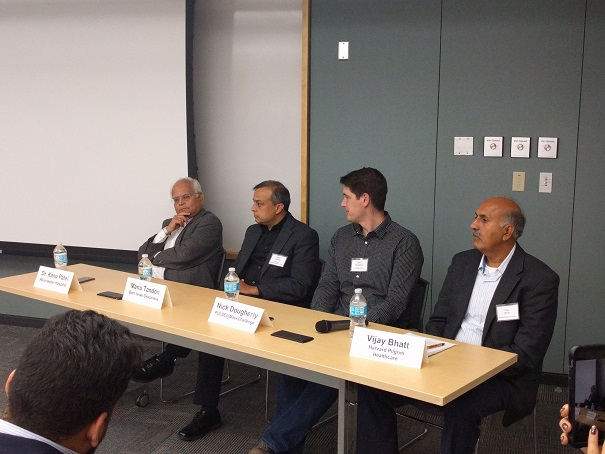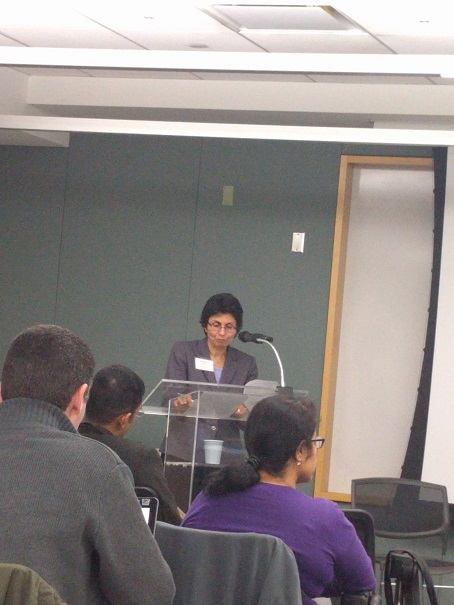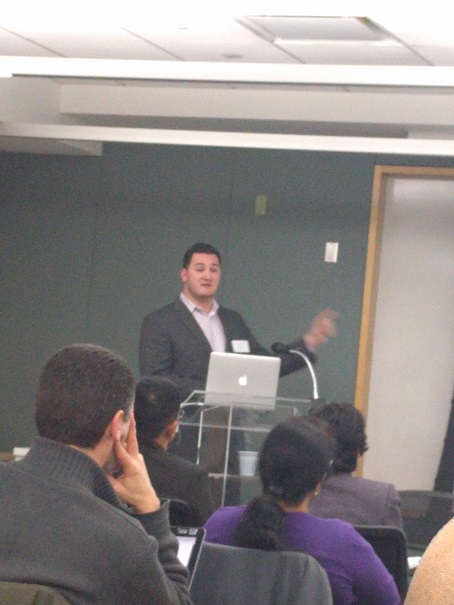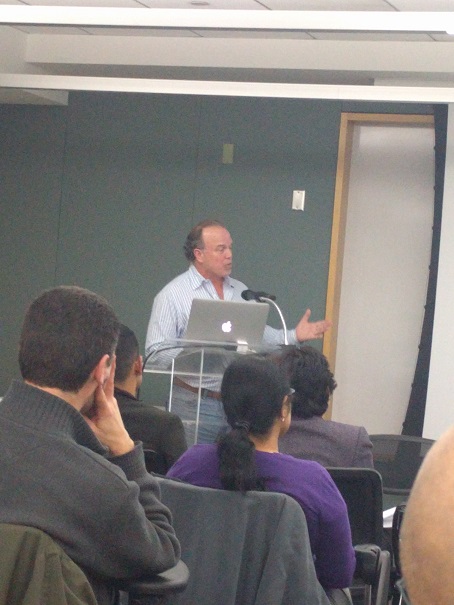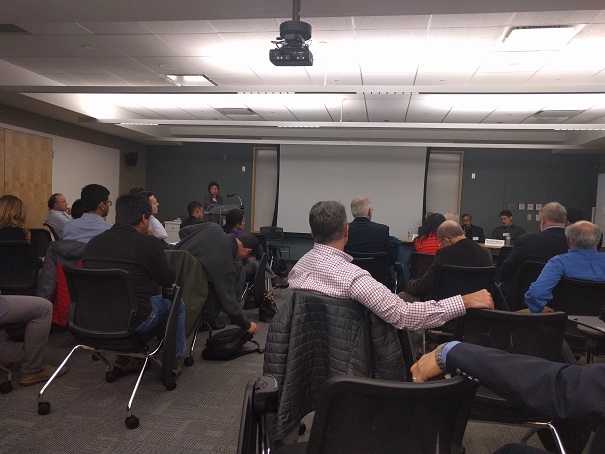Contribute
| TiE-Boston Organizes A Panel Discussion On Digital Health |
Anil Saigal
10/27/2016
TiE-Boston organized a panel discussion on Digital Health: How Do We Get To Uniform Adoption? on October 26th at the Cambridge Innovation Center, Cambridge, MA. The panelists Vijay Bhatt, Deputy CTO, Harvard Pilgrim Health Care,; Nick Dougherty, Program Director, Pulse@MassChallenge; Manu Tandon, CIO, Beth Israel Daconess Medical Center; and Dr. Kanu Patel, Internal Medicine, Winchester Hospital. The event was moderated by Ameeta Soni, Co-Founder, FitTrace. It was an extremely engaging discussion with nearly 60 people in attendance.
The event started with two 10-minute presentations by Constant Therapy, which focusses on mental and speech exercises, and PatientPing, which connects patients with providers.
Bhatt talked about the new fund at HPHC focusing on Digital Health. He also talked about value based reimbursement and managing risks as HPHC moves forward. Computer-based doctor-patient matching will have limited penetration in the near term as medical intervention needs human touch.
Dougherty felt that we should be able to build the best systems in the world since we have the best ecosystem, talent and funding. However, there is an enormous barrier to entry and a $1M results in limited progress and penetration. Companies should focus on addressing a problem rather than thrusting solutions.
“Even though healthcare is a noble business, it is in trouble,†said Tandon. Since it is a huge industry, every one has a vested interest. We do not have access to good information to make good decisions. The business model is broken and technology alone will not fix it. We need something disruptive – forced or unforced. There is absolutely no transparency in the health care system. The drug costs and unit costs are too high! The goal should be to develop technology that can be used at the point of delivery.
“I request you to work towards giving the physicians their independence back in delivering health care,’ said Patel. Digital Health has some advantages such as legible medical records, completeness, remote access, electronic prescription and telemedicine. However, the amount of time the doctors and nurses spend on the computer rather than with the patient has not led to efficiencies and cost reductions that were expected.
You may also access this article through our web-site http://www.lokvani.com/
